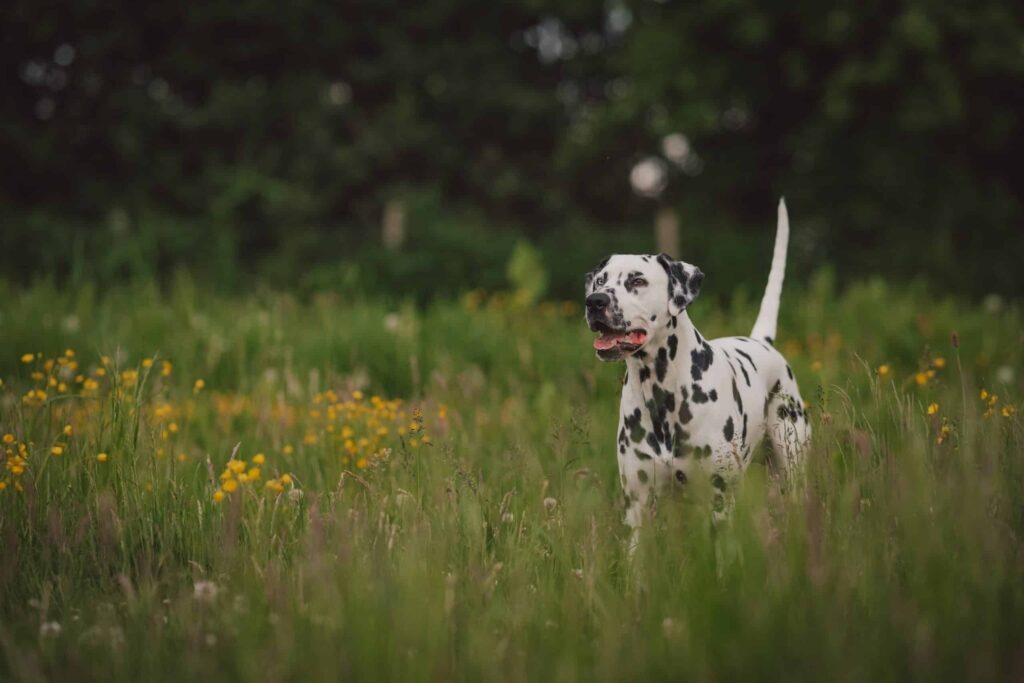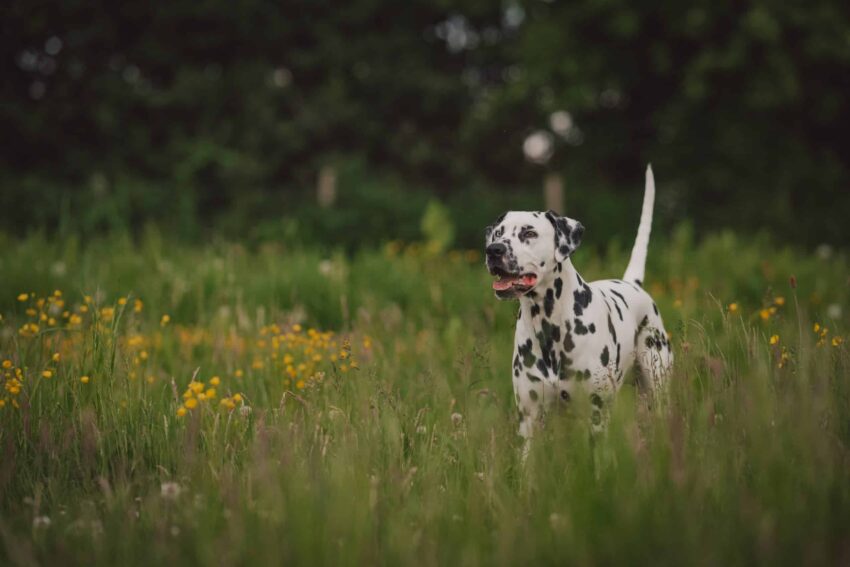
The Ultimate Guide to Choosing the Best Dalmatian Dog Food
Dalmatians, known for their distinctive spotted coats and energetic personalities, have specific dietary needs. Selecting the best Dalmatian dog food is crucial for maintaining their health and preventing certain breed-specific conditions. This comprehensive guide will explore the key considerations when choosing the right food for your Dalmatian, ensuring they thrive at every life stage.
Understanding Dalmatian-Specific Dietary Needs
Dalmatians have a unique genetic predisposition that affects how they process uric acid. Unlike most dogs, Dalmatians don’t efficiently convert uric acid into allantoin, which can lead to the formation of urate crystals in the bladder and kidneys. This condition, known as hyperuricosuria, can result in painful bladder stones and urinary tract issues. Therefore, a carefully selected diet is essential for managing this condition and promoting overall well-being. Choosing the best Dalmatian dog food involves understanding these specific requirements.
The Importance of Low-Purine Diets
Purines are naturally occurring substances found in many foods. When broken down, purines produce uric acid. To minimize the risk of urate stone formation, Dalmatians need a diet low in purines. Foods high in purines include organ meats (liver, kidney), red meat, certain types of fish (sardines, anchovies), and yeast extracts. The best Dalmatian dog food will be formulated with low-purine ingredients. Reading the ingredient list carefully is critical.
Protein Considerations
While reducing purines is essential, it’s also important to ensure your Dalmatian receives adequate protein for muscle development and overall health. The key is to choose protein sources that are naturally lower in purines. Chicken, turkey, eggs, and some plant-based proteins are generally considered better options than beef or organ meats. Look for a best Dalmatian dog food that balances protein content with low purine levels. Pay attention to the protein percentage on the dog food label.
Key Ingredients to Look For in Dalmatian Dog Food
When selecting the best Dalmatian dog food, several key ingredients should be prioritized:
- High-Quality Protein Sources: Chicken, turkey, lamb, or fish (excluding high-purine varieties) should be the primary protein source.
- Low-Purine Vegetables: Vegetables like carrots, sweet potatoes, and green beans are excellent sources of vitamins and fiber without contributing significantly to purine levels.
- Whole Grains (if tolerated): Some Dalmatians thrive on grain-inclusive diets, while others may be sensitive to grains. If choosing a grain-inclusive food, opt for whole grains like brown rice or oatmeal. However, monitor your dog for any signs of allergies or sensitivities.
- Antioxidants: Antioxidants like vitamin E and vitamin C can help support the immune system and overall health.
- Omega Fatty Acids: Omega-3 and omega-6 fatty acids promote healthy skin and coat, which is particularly important for Dalmatians, who can be prone to skin issues.
Ingredients to Avoid in Dalmatian Dog Food
Certain ingredients should be avoided when choosing the best Dalmatian dog food to minimize the risk of hyperuricosuria and other health problems:
- Organ Meats: Liver, kidney, and other organ meats are extremely high in purines.
- Red Meat: Beef and other red meats are also high in purines and should be limited or avoided.
- Certain Fish: Sardines, anchovies, and herring are high in purines.
- Yeast Extracts: Yeast extracts can contribute to elevated uric acid levels.
- Excessive Protein: While protein is essential, too much protein can also increase uric acid production. Aim for moderate protein levels appropriate for your dog’s age and activity level.
- By-Products: Avoid foods that list unnamed meat by-products as a primary ingredient. These can be of lower quality and may contain higher levels of purines.
Choosing the Right Food for Different Life Stages
A Dalmatian’s dietary needs will change throughout their life. Puppies, adults, and seniors require different nutrient ratios to support their specific needs. Selecting the best Dalmatian dog food requires considering their life stage.
Puppy Food
Dalmatian puppies need a diet rich in protein and calories to support their rapid growth and development. Look for a puppy food specifically formulated for medium-sized breeds. Ensure the food contains appropriate levels of calcium and phosphorus for bone development. However, be mindful of purine levels and choose protein sources that are lower in purines. Monitor their growth carefully to prevent overfeeding, which can contribute to developmental problems. A good start with the best Dalmatian dog food will set them up for a healthier adulthood.
Adult Food
Adult Dalmatians need a balanced diet to maintain their energy levels and overall health. Choose a high-quality adult dog food with moderate protein levels and low purine content. Consider your dog’s activity level when determining the appropriate portion size. Active Dalmatians may need more calories than less active ones. Regular exercise is key to a healthy lifestyle. The best Dalmatian dog food for adults will help maintain ideal weight and muscle mass.
Senior Food
Senior Dalmatians may benefit from a diet that is lower in calories and higher in fiber to help manage weight and support digestive health. Look for a senior dog food that contains glucosamine and chondroitin to support joint health. As with all life stages, prioritize low-purine ingredients. Senior dogs may also have decreased kidney function, making it even more important to manage uric acid levels. The best Dalmatian dog food for seniors will support their aging bodies and help maintain their quality of life.
Reading Dog Food Labels: A Comprehensive Guide
Understanding how to read dog food labels is essential for choosing the best Dalmatian dog food. Here’s what to look for:
- Ingredient List: The ingredients are listed in descending order by weight. The first few ingredients make up the bulk of the food. Look for high-quality protein sources as the primary ingredients.
- Guaranteed Analysis: This section provides information on the minimum percentage of crude protein and crude fat, as well as the maximum percentage of crude fiber and moisture.
- AAFCO Statement: The Association of American Feed Control Officials (AAFCO) statement indicates whether the food is complete and balanced for a particular life stage. Look for a statement that says the food meets the nutritional levels established by AAFCO for the appropriate life stage (puppy, adult, or senior).
- Feeding Guidelines: These guidelines provide recommendations on how much to feed your dog based on their weight and activity level. However, these are just guidelines, and you may need to adjust the amount based on your dog’s individual needs.
Transitioning to a New Food
When switching to a new food, it’s important to do so gradually to avoid digestive upset. Start by mixing a small amount of the new food with your dog’s current food and gradually increase the amount of new food over a period of 7-10 days. Monitor your dog for any signs of digestive issues, such as diarrhea or vomiting. If you notice any problems, slow down the transition. A smooth transition to the best Dalmatian dog food is crucial for their health.
Homemade Diets: Considerations and Risks
While homemade diets can be a good option for some dogs, they require careful planning and preparation to ensure they meet all of your Dalmatian’s nutritional needs. It’s essential to work with a veterinary nutritionist to develop a balanced recipe that is low in purines and appropriate for your dog’s life stage. Homemade diets can be time-consuming and require a significant commitment. Without proper guidance, homemade diets can lead to nutritional deficiencies or imbalances. Before considering a homemade diet, consult with your veterinarian. Ensuring the best Dalmatian dog food, even homemade, requires expert knowledge.
Consulting with Your Veterinarian
Before making any significant changes to your Dalmatian’s diet, it’s always a good idea to consult with your veterinarian. They can help you assess your dog’s individual needs and recommend the best Dalmatian dog food based on their health status, age, and activity level. Your veterinarian can also monitor your dog for any signs of hyperuricosuria or other health problems and adjust their diet accordingly. Regular check-ups are vital for maintaining your Dalmatian’s health.
The Long-Term Benefits of a Proper Diet
Choosing the best Dalmatian dog food is an investment in your dog’s long-term health and well-being. A proper diet can help prevent hyperuricosuria, maintain a healthy weight, support a strong immune system, and promote a healthy skin and coat. By understanding your Dalmatian’s unique dietary needs and selecting a high-quality food that meets those needs, you can help your dog live a long, happy, and healthy life. Remember to always prioritize low-purine ingredients and consult with your veterinarian for personalized recommendations. Investing in the best Dalmatian dog food is an investment in their future.
[See also: Dalmatian Health Issues]
[See also: Best Dog Food for Sensitive Stomachs]
